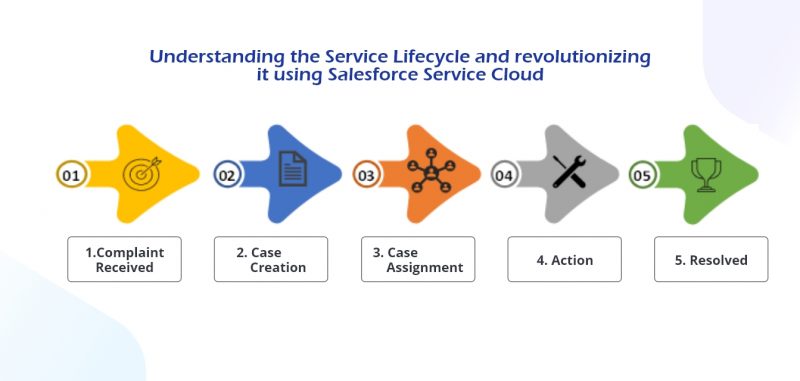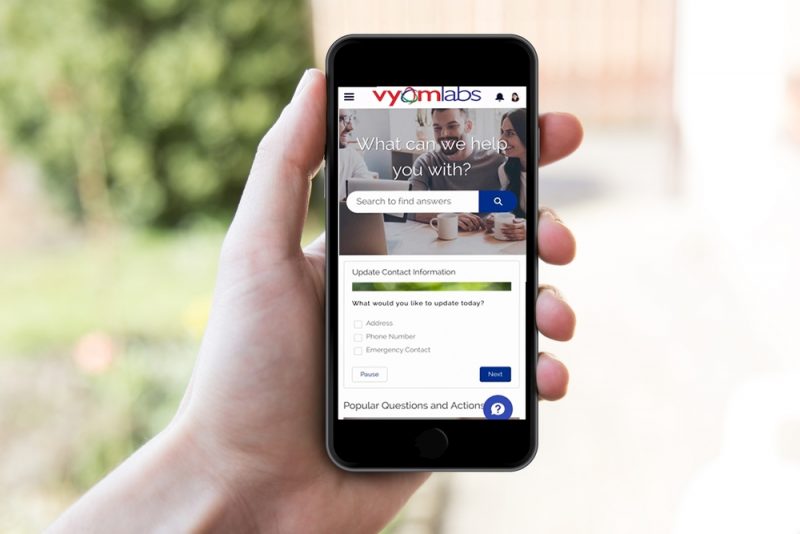A good marketing team will help your company broaden your company’s reach, a good sales team will utilize the outreach and zero in on your potential clients and will get your company a foot on their doorstep. But all of these efforts can go down the drain if the aftersales and service cannot keep up. And here are 3 facts based on research conducted by Salesforce regarding the impact of service on the brand.
- 70% of buying experiences are based on the kind of service the customers are getting.
- A customer is four times more likely to buy from your competitor if the problem he is facing is based on service rather than price or the product/service itself.
- 72% of customers reported that having to explain the same problem to multiple people makes for a poor experience.
In the grand scheme of things, these stats and facts contribute to form a significant proportion of the overall customer satisfaction index. But in this day and age, technology is evolving at a staggering pace. And stating that “to not leverage it is a big mistake” would be a gross understatement. The way to a smarter, brighter, and innovative tomorrow is paved with technology. And the piece of tech comes in many forms, but for the service teams, it comes in the guise of a service platform we know as Salesforce Service Cloud. And here are five ways to revolutionize your aftersales using one of the best and sought-after tools for customer support reps available in today’s market.
1. Understanding the Service Lifecycle and revolutionizing it using Salesforce Service Cloud

If we carefully analyze the service lifecycle, it becomes evident that there are a lot of variables in between that need to be addressed in order to deliver a smooth and seamless customer experience.
To start with, the Salesforce Service Cloud can capture issues from virtually every channel out there when it is integrated with the right applications. It can capture customers’ complaints through forms, emails, telephones, chats, social media, and even lets the support executive create incidents manually. Once the case is created, they are allotted to the support executives via an AI channel called the Einstein. And the best part is that the usefulness of the Service Cloud doesn’t end here. It also comes in handy in resolving the issues by readily keeping the knowledge base ready with AI-suggested articles. And bam! You have successfully converted a customer engagement into a success story.
2. No more spreadsheets!
It’s the end of the month, the time everybody is looking forward to. Except for the fact that support reps have to fill in their monthly reports and send them to their respective leaders. And the leaders have to invest painstaking hours into compiling them into a single report with at least some actionable insight. Because there is an excessive amount of human intervention required in this approach, the margin for error increases substantially. Unless your teams are using the Salesforce Service Cloud. In that case, the CRM compiles, records, and presents the data in the form of neat reports that can be accessed and shared across the teams easily while providing priceless intel on your team’s performance, areas of improvement, customer’s history, customer’s purchases, previous interactions, and much more. That means less fuss filling out spreadsheets and more time addressing your customer’s concerns. In the long run, the Salesforce Service Cloud becomes the go-to tool for your service reps.
3. Going mobile with the Service Cloud mobile app

There may be times when your service reps may need to go into the field to troubleshoot the product. In such cases, your service rep’s phone becomes his entire work system. Be it accessing the knowledge base, escalating the issue, or logging the details of the service interactions for the monthly report, the Salesforce Service Cloud mobile app goes beyond ticking the right boxes. Don’t let lack of technology keep your reps from adding that personal touch that ultimately makes the difference and leaves a lasting impression.
4. Empowering the customer with Service Cloud
Some issues can be resolved by simply going through the FAQ, or by going through the product guides. For more severe issues, the customer should be able to reach out to your support team through the channel at his convenience. That requires your service portal to be available on all the possible channels. The Salesforce Service Cloud can be integrated with a wide array of applications to make sure that no stone is left unturned. It also offers multiple self-service options that take care of simple operations. That way your customers resolve some of the L1 issues themselves which indeed adds to the customer satisfaction index. In the end, customers are the ones who are going to interact with the product and the documentation related to it. A study by Salesforce shows that the ratio of the usage of the knowledge base by customers versus support teams is 82% to 66% respectively, and that of the usage of service portals by customers versus support teams is 84% to 64%. With the Service Cloud, the convenience and ease of access empower the customer to tackle the issues effectively.
5. Automation that saves time
Some of the simple tasks like initiating refund, order cancellation, scheduling returns are some of the repetitive tasks that consume a significant bandwidth of your support teams. The Salesforce Service Cloud offers robust automation options that let your support executives focus on severe problems and save invaluable times to connect with the customers for personalized support.
Conclusion:
Be it a product-based or service-based company, unless your company has the aftersales that can keep up with sales, marketing, and operations, the chances of the customer bouncing to another brand increase. But with the right CRM software, it doesn’t necessarily have to be the case. At Vyom Labs, our experts have extensive experience with Service Cloud and would like nothing but to help your firm become that service powerhouse that you always wanted. All you have to do to initiate the transition is just go ahead and say hi.
About the Author:
 Beena Dhage
Beena Dhage
Customer Experience (CRM) enthusiast with expertise in providing solutions leveraging digital and cloud technologies. With forte in Customer Service, BMC Remedyforce Services Delivery and ITIL.
Beena Dhage has over 18+ years in the field of IT – focused on implementing, managing, and supporting Salesforce CRM and ITIL-based ITSM applications. She has vast experience of successfully delivering projects in multi-shore / location environment for customers across various verticals including Financial services, Retail, Manufacturing and Information Technology
